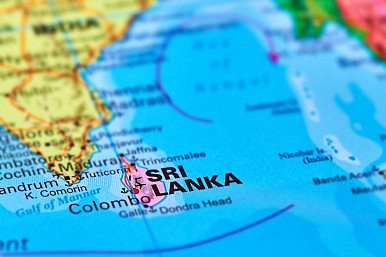State, Policy Making & National Security

By Nipuli Gajanayake –April 22, 2017
The thirty Years War in Europe and the Civil War in England have symbolized historic reasons to derive the modern concept of national security in the 17th century. The concept of national security is emphasizing on protecting state and its citizens against internal and external threats. On the other hand, the Pact of Westphalia has established the political theory of sovereignty which indicates the supreme authority of a nation state. The convolution between a sovereign state and national security becomes salient elements in maintaining security and survival to its citizens within the state and in the mutable international system. Therefore, framing of national policy frameworks has parallelly become a crucial assignment of every government to prepare for unprecedented domestic and external threats and also for reduction of risks and threats. Therefore, the policymaking remains as an ‘imperative’ task of every government to make the state secure for its citizens to survive without any types of disturbances.
Understanding national security vulnerabilities are becoming important as a result of trending internal and external menaces to a nation state. Classically, such threats can simply categorize either as national and international or as traditional and non-traditional. By all the means of ‘national security’, is finally come to the focal point of ‘state survival’ and ‘citizen’s protection’. The Peace of Westphalia was able to implant the root to this prudent rationale by installing the notion of a nation state, which has sovereign control over both domestic and external security. Since then, nation states have been practising strategic security interests to maintain its peaceful and stable survival both in internal and external contexts through national policy frameworks. National policy frameworks emphasized on different aspects of national security. Mainly Political security, economic security, social security, human security, energy security, natural resources security and environmental security can identify. 

In this scenario, national policy frameworks like defence policy, economic policy, foreign policy, health policy, education policy, and environmental policy transpire as every government’s decisive factors to maintain internal and external security condition. On the other hand, national survival and citizen’s protection of a nation state relies on the promising security conditions that include in the above mentioned policy aspects. Therefore, national decision taking and policymaking process operate as a key mechanism in framing and implementing national policies. Moreover, nation states use these policies to represent the country and promote national interests abroad, while protecting national survival and national security.
The relationship between the concept of globalization and the novel age of hyper-connectivity has set up nation states to welcome unprecedented challenges and threats. These unexpected conditions display the capabilities of state actor in facing and tackling domestic and external tough situations. On the other hand this reflects the practical utility of national policy frameworks of a country to stand as a strong nation. As an example Japan remained as a victim of more natural calamities because of its geographical localization. They face diverse types of natural disasters including tsunamis, floods, typhoons, earthquakes, cyclones and volcanic eruptions. Therefore, Japan Central Disaster Management Council which consists of the Prime Minister, Minister of State for Disaster Management, all ministers, heads of major public institutions and experts, handle planning and central coordination with regard to matters relating to basic policy on disaster risk reduction, and matters concerning disaster countermeasures in the event of a large-scale disaster. Moreover, in 2015 Japan Cabinet Office of Disaster Management published a White Paper on Disaster Management to understand its disaster risk management policies. According to Ms. Margareta Wahlstrom, the Special Representative of the United Nations for Disaster Risk Reduction (UNISDR) and Secretary-General for Disaster Risk Reduction; “The White Paper on Disaster Management is one of Japan’s most noteworthy initiatives comprehensive reports on a regular basis. Other countries can learn from Japan’s example and adapt this model to their own needs.” Thus, the above mentioned factors prove that Japan policy measures have ultimately assisted to keep and maintain stable and secured state for its own people.

